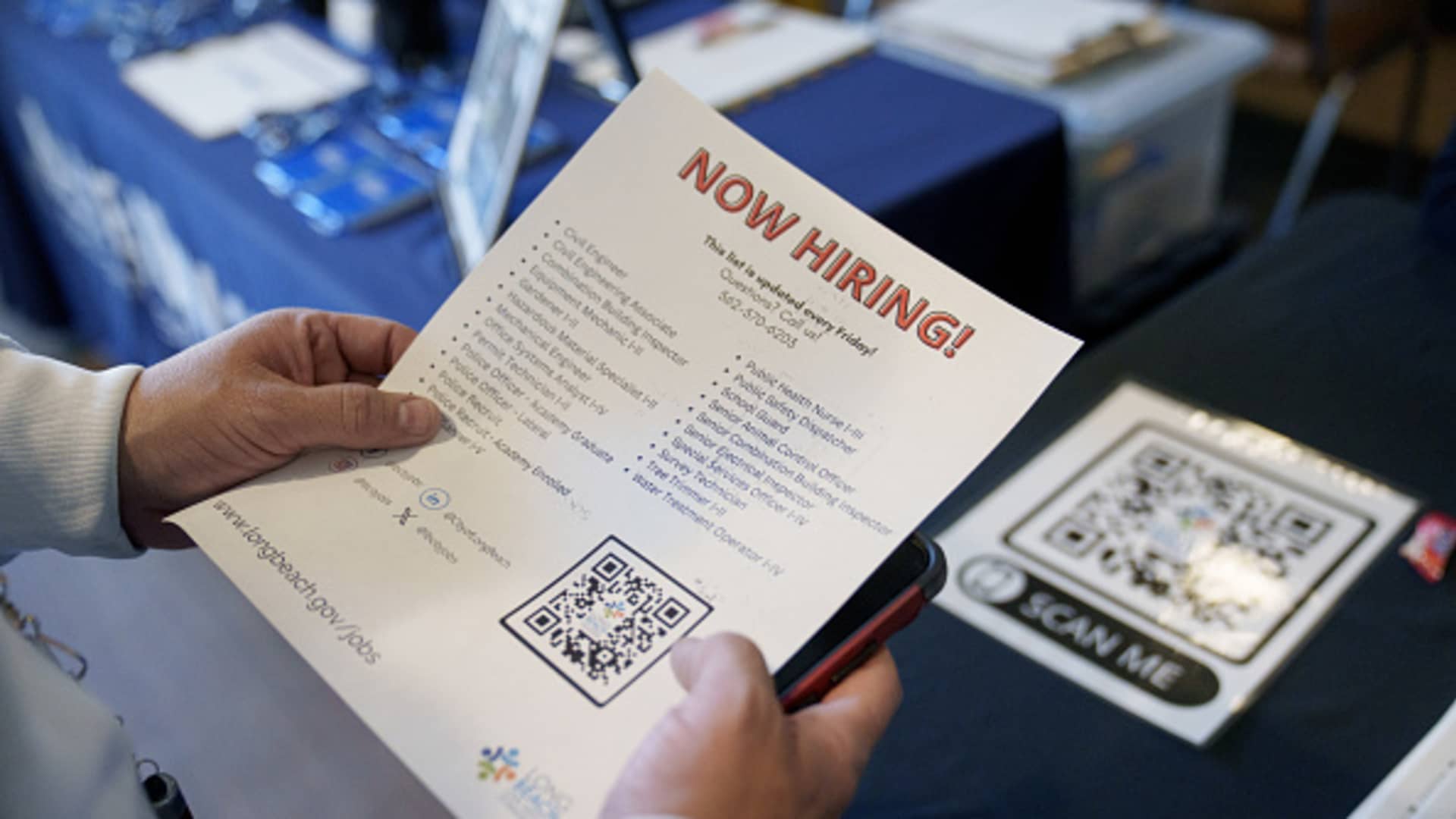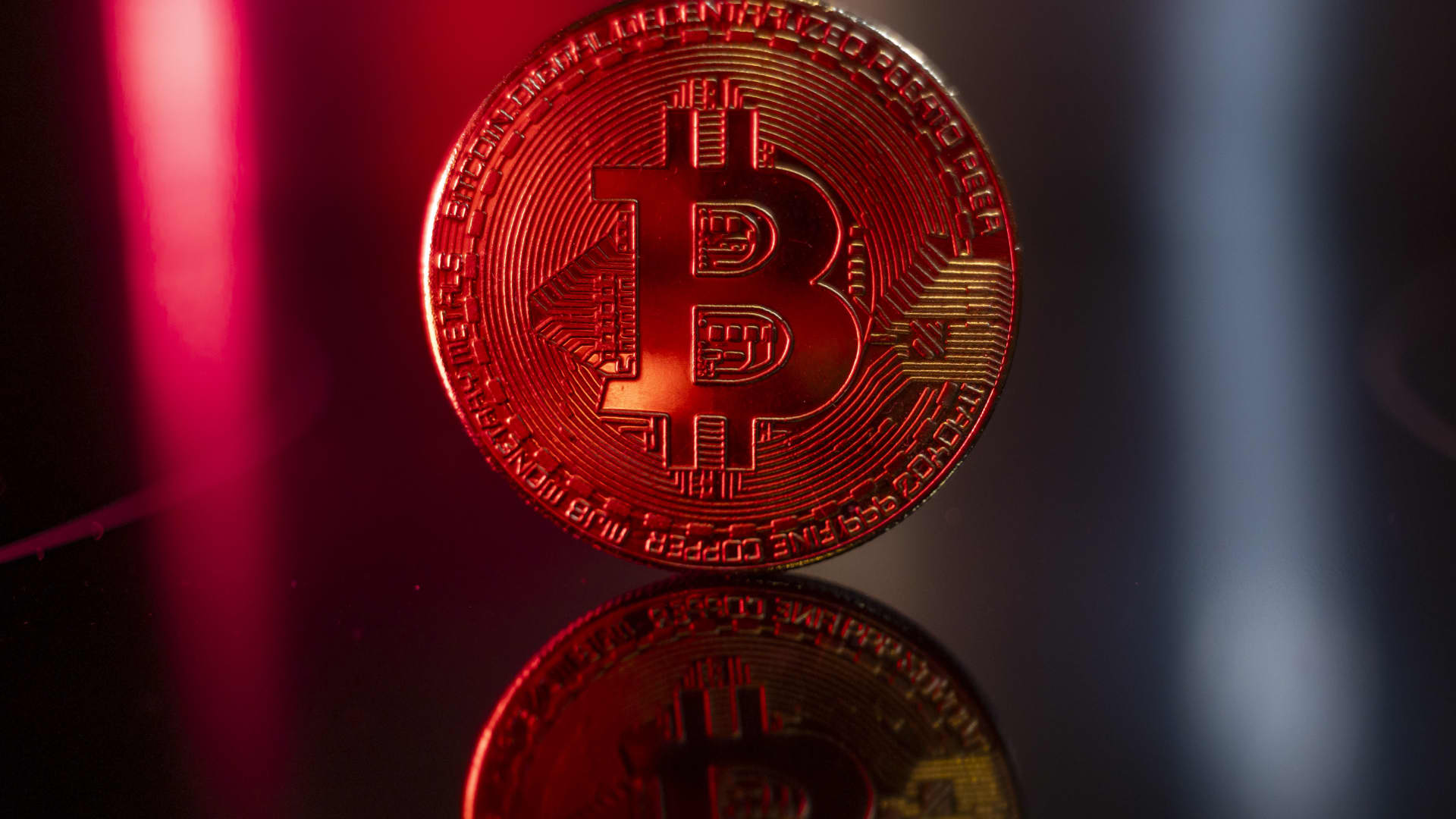President Biden’s trillion-dollar effort to boost American manufacturing and accelerate the transition to cleaner energy sources is colliding with a surge in cheap exports from China and threatening to devastate the investment and jobs central to Mr. Biden’s economic agenda.
Mr Biden is considering new measures to protect emerging industries such as electric vehicle production and solar panel manufacturing from Chinese competition. On Wednesday in Pittsburgh, the president called for higher tariffs on Chinese steel and aluminum products and announced a new trade investigation into China’s heavily subsidized shipbuilding industry.
“I’m not looking for a fight with China,” Mr. Biden said. “I’m looking for competition – and fair competition.”
Unions, manufacturing groups and some economists say the government may need to do much more to restrict Chinese imports if it wants to ensure that Mr. Biden’s sweeping industrial initiatives are not swamped by lower-cost Chinese versions of the same new technologies.
“It is a very clear and present danger because the Biden administration’s industrial policy is largely focused not on traditional, low-skill, low-wage manufacturing, but on new high-tech manufacturing,” said Eswar Prasad of the Cornell University economist specializing in trade policy.
“These are precisely the areas where China has increased its own investments,” he said.
Both America and China are using large government subsidies to boost economic growth and seeking to dominate what they see as the most important global markets of this century: the technologies designed to accelerate the global transition away from fossil fuels to avert catastrophic climate change.
However, their approach to financing these industries differs in important ways. Chinese officials have poured money into factories and, among other things, offered attractive loans from state banks to companies that might not otherwise have survived, to offset a housing crisis and sluggish domestic consumption. These factories often use cheap labor.
China’s factories now export goods at prices often well below those of their competitors, helping to boost China’s economy. In some cases, other nations claim that Chinese companies sell their products abroad at a loss.
Mr. Biden is also directing federal money to targeted industries in the hope of spurring innovation through well-paying jobs and opening up new avenues for the middle class. He has signed an infrastructure bill, an advanced manufacturing bill focused on semiconductors and a series of manufacturing incentives included in his climate bill, the Inflation Reduction Act. The spending and tax cuts of these laws have led companies to announce plans for hundreds of billions of dollars in new factory investments across the United States.
Some of this assistance is conditional. The government has made federal funding conditional on companies paying relatively high wages or providing child care for workers. Other credits are conditional on factories using components mined or manufactured in America. Mr. Biden has bet on creating more good-paying jobs, especially union jobs, in his re-election bid, but some economists have raised concerns that these efforts to change corporate behavior will undermine his core industrial policy goals.
Mr Biden and his economic team increasingly see Chinese imports as a direct threat to the president’s agenda. They are considering new and higher tariffs on some strategic imports from China and have launched several investigations into Chinese technologies such as software and other components of electric vehicles and other internet-connected automobiles.
Administration officials are mindful of how previous waves of cheap Chinese exports of steel and aluminum have hollowed out American manufacturing centers in recent decades. Although heavily subsidized exports of solar panels, batteries and electric vehicles are helpful in curbing inflation and combating climate change, government officials believe the prospect of lost jobs and shuttered businesses is politically and economically too high.
The competing goals pose a challenge as the Biden administration tries to make the case that China should reduce its production of clean energy technology.
“On the one hand, the Biden administration is doing everything it can to increase consumption of renewable energy products,” said Scott Lincicome, a trade expert at the Cato Institute, a libertarian research center. “On the other hand, it warns China against selling cheap renewable energy products, which would boost American consumption of the very products we want to promote.”
Janet L. Yellen, the Treasury secretary, admonished her Chinese counterparts over unfair trade practices during a visit to China last week. Administration officials raised concerns about Chinese manufacturing output on Tuesday ahead of Mr. Biden’s announcements in Pittsburgh.
“China’s policy-driven overcapacity poses a serious risk to the future of America’s steel and aluminum industries,” Lael Brainard, head of the White House National Economic Council, said during a call with reporters. “China cannot export its path to recovery. China is simply too big to play by its own rules.”
Chinese officials have made similar complaints against the Biden administration. In response to the new investigation into Beijing’s shipbuilding subsidies, Chinese Commerce Ministry officials issued a statement saying, “The development of China’s industry is the result of technological innovation and the active participation of Chinese enterprises in market competition,” rather than unfair government support.
“We urge the US to respect the facts and multilateral rules, immediately stop its wrong practices and return to the rules-based multilateral trading system,” the officials said.
But Americans aren’t the only ones complaining about China’s new wave of exports. European leaders have expressed similar concerns, including Chancellor Olaf Scholz of Germany, who complained during an official visit to Beijing this week that Chinese goods were being sold at a loss in Europe.
The European Union is conducting its own investigation into Chinese imports of electric vehicles, which could ultimately lead to tariffs on those products. The bloc has already introduced a carbon border tax that is expected to hit China, where environmental regulations are more relaxed. The new program will impose tariffs based on the carbon emissions associated with the production of imported goods. And Mexico and Brazil are also conducting anti-dumping investigations against China, which could lead to new trade restrictions.
Bruno Le Maire, the French finance minister, noted on Wednesday that the deficit between what Europe exports to China and what it imports has tripled in the last 15 years and that more needs to be done to level the playing field to accomplish.
“Europe must show its teeth in trade and commercial relations,” Le Maire said, explaining that while trade wars would be damaging, Europe should adopt the kind of industrial policies that China and the United States have adopted.
“I just want to emphasize the need for Europe to better protect its economic and industrial interests,” he said.
The United States and its allies have historically struggled to mount a coordinated response to threats from Chinese competition to their domestic industries. That could change this time, said Mark Haefele, chief investment officer of UBS Global Wealth Management. The success of China’s industrial exports could prove to be a “catalyst for a more coordinated response” from the United States and Europe to trade, he said.
The case for tougher protectionism was made clear this week at the spring meetings of the International Monetary Fund and the World Bank. As the Fund warned that tariffs posed a threat to the global future, business leaders explained why they believed action to protect their domestic industries was necessary.
“Investment in manufacturing has skyrocketed, and capacity utilization in these sectors is very low,” Ms. Yellen said of China’s spending on green energy technology. “With these subsidies, capacity exceeds global demand and is expected to do so in the next decade.”
She added: “So this is not a level playing field.”
The government was under pressure to do more to protect American industry. Senator Sherrod Brown, an Ohio Democrat who faces a difficult re-election, last week called for Mr. Biden to ban Chinese electric vehicles, which already face high tariffs. He called Chinese electric vehicles an “existential threat to the American auto industry.”
Mr. Biden angered Mr. Brown and other manufacturing advocates in 2022 when he declared a two-year pause on existing tariffs on imported Chinese solar panels, effectively allowing more of them to enter the U.S. market. He vetoed a bipartisan bill in 2023 that would have reinstated those tariffs before June 2024, when the two-year pause expires.
He also faced pressure to increase tariffs on Chinese components for electric vehicles or other clean energy technologies. Tariffs are currently 7.5 percent on electric vehicle battery packs, but 25 percent on the components of those packages, said Brad Setser, a senior fellow at the Council on Foreign Relations in Washington and a former adviser to the U.S. Trade Representative under Mr. Biden. The lower rate should be increased, he said.
Mr. Setser also noted that China has long directed its subsidies toward companies that manufacture and source their products in China – and has sometimes required those companies to be Chinese-owned.
“To build industrial sectors where China has a first-mover advantage and now a cost advantage,” he said, “you have to have an isolated market — and use some of the tools that China has already used.”
Source link
2024-04-18 15:30:09
www.nytimes.com














